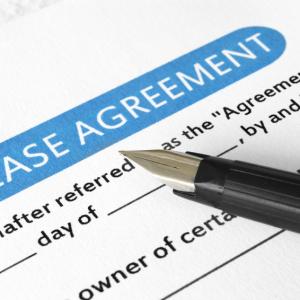When A Tenant Breaches A Lease
 A London homeowner was ordered to surrender ownership of their leasehold flat, worth £600,000, back to their landlord. Why? On the face of it this appears to be unfair so how can this happen?
A London homeowner was ordered to surrender ownership of their leasehold flat, worth £600,000, back to their landlord. Why? On the face of it this appears to be unfair so how can this happen?
A lease is a contract between the landlord and the tenant.
Just like any contract, if a leaseholder breaches the terms of their lease, the landlord will have remedies available to them.
Types of breach.
Breaches may relate to for example unpaid rent, maintenance charges or carrying out works to the property without the landlord’s consent and the remedy chosen by the landlord will depend upon:-
– The nature of the breach;
– The specific terms of the lease;
– The landlord’s commercial aims in respect of the property.
Remedies.
Remedies for the landlord include self-help also known as the “Jervis v Harris clause”. This particular remedy is available where the tenant fails to carry out repair works. The landlord may enter the property, carry out the repair work and reclaim the cost from the tenant. The landlord however does need to be careful not to go beyond the specific disrepair relating to the breach as this may amount to trespass.
The landlord may seek damages from the tenant for a breach of the terms of the lease, if these are an appropriate remedy.
The equitable remedy of specific performance may be used to perhaps force a tenant to carry out repair works. Or, if the tenant is carrying out or has carried out unauthorised works or breached the alienation provisions of the lease (unlawfully parting with possession of the premises) an injunction may be used.
Forfeiture.
A forfeiture clause in a lease allows the landlord to terminate the lease early and recover possession of the let property because of the tenant’s breach of covenant. This is the ultimate sanction for a landlord for breaches by the tenant and, although harsh, is a standard clause in most leases.
Historically many leases also included the bankruptcy/insolvency of the tenant as grounds for forfeiture, but this provision is not acceptable to most mortgage lenders and is now uncommon (in relation to residential/domestic leases).
The landlord will only be able to forfeit the lease if the lease contains an express forfeiture clause and for residential properties that are occupied, a landlord will have to go to court in order to do so.
Serving Notice.
Subject to satisfying certain criteria, in order to commence forfeiture proceedings the landlord must first serve a valid notice under Section 146 of Law of Property Act 1925.
The notice must:-
– specify the breach complained of,
– if the breach is capable of remedy, require the leaseholder to remedy the breach, and
– in any case require the leaseholder to make compensation in money for the breach.
The leaseholder will be afforded a reasonable time to remedy the breach if it is capable of remedy following service of the Section 146 notice.
Court proceedings cannot be commenced unless the leaseholder fails within a reasonable time to remedy the breach, if it is capable of remedy, and to make reasonable compensation in money for the breach, to the satisfaction of the landlord.
Common Breaches.
The most common forms of breaches by tenants are:-
– Tenants making alterations to the property without consent;
– Tenants removing carpets and installing hardwood flooring;
– Non-payment of service charges;
– Noise complaints;
– Allowing pets at the property;
– Issues regarding parking spaces;
– Leaks or damage to the property caused by negligence of tenant;
– Repairing obligations;
– Sub-letting parts or whole of the property without consent.
If you own a leasehold property it is important to be aware of all of the tenant’s obligations set out in the lease and ensure that you comply with these in order to avoid any breach.
If you are purchasing a leasehold property, the tenant’s obligations must be checked prior to committing to the purchase to ensure that the stipulations will not cause an issue with the future use of the property. It is also necessary to check for any existing breaches by a previous owner for which subsequent owners may find themselves liable.
It is also important to deal with any requests or notices received from your landlord in a timely manner.
If you require advice or assistance regarding the sale or purchase of leasehold property please get in touch with one of our 5 expert Residential Conveyancing Teams.
